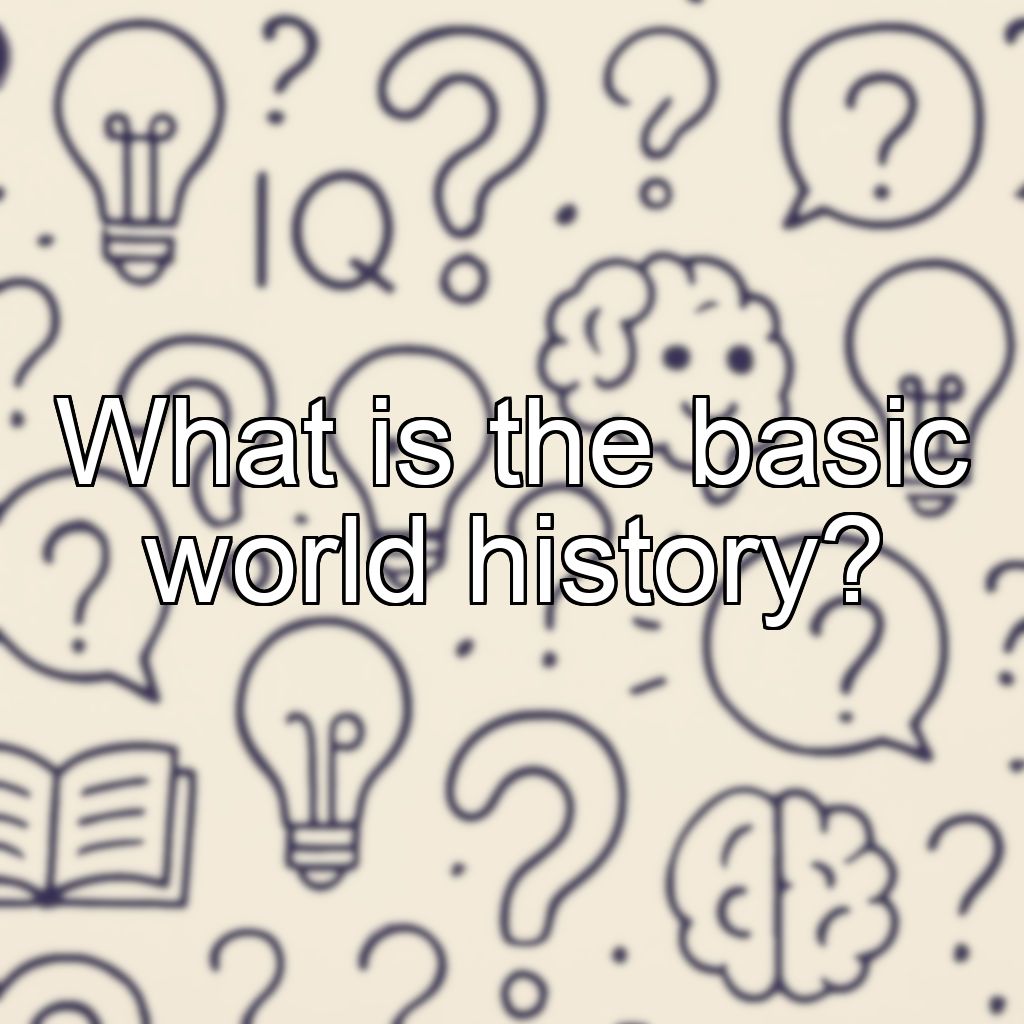What is the basic world history?

Overview of Basic World History
World history is the study of major events, civilizations, and developments that have shaped humanity from ancient times to the present. Here is a simplified overview of key periods and milestones:
Prehistory
- Stone Age: Early humans developed tools, discovered fire, and formed small communities as hunter-gatherers.
- Neolithic Revolution: The transition to agriculture and settled life, leading to the rise of villages and early cities.
Ancient Civilizations
- Mesopotamia, Egypt, Indus Valley, and China: Early river valley civilizations developed writing, complex governments, and monumental architecture.
- Classical Civilizations: Greece and Rome in the West, and powerful empires in India, China, and Persia shaped culture, government, and science.
Medieval Period
- Middle Ages: In Europe, feudalism and the Catholic Church dominated; in Asia, Islamic empires, China’s dynasties, and Japan’s samurai rose to power.
- Africa and the Americas: Flourishing kingdoms like Mali, and civilizations such as the Maya, Aztec, and Inca.
Early Modern Period
- Renaissance and Reformation: Europe experienced a cultural rebirth and religious upheaval.
- Exploration and Colonization: European powers explored, conquered, and colonized parts of Africa, Asia, and the Americas.
Modern Era
- Industrial Revolution: Technological advances transformed economies and societies worldwide.
- Revolutions: The American, French, and other revolutions led to new ideas about government and rights.
- World Wars: The 20th century saw two devastating world wars, the rise and fall of empires, and the Cold War.
Contemporary World
- Globalization: Increased international interdependence in economics, culture, and communication.
- Technological Progress: Digital revolution, advances in science, and growing environmental awareness.
World history is vast and complex, but these highlights provide a broad outline of humanity's shared journey.